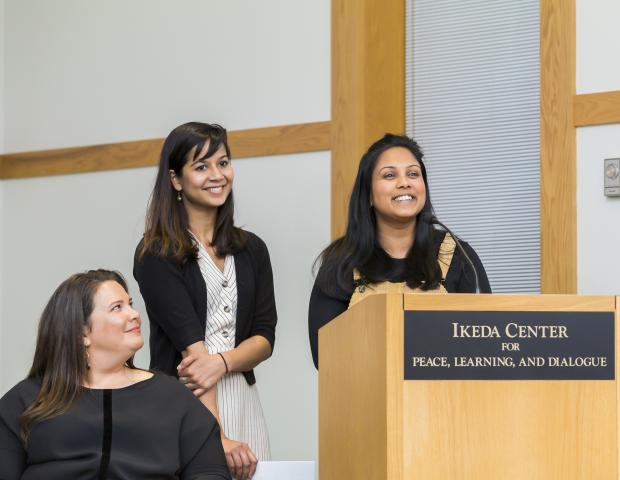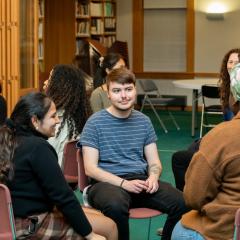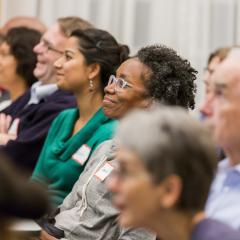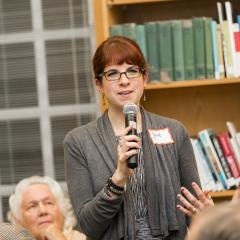What Do We Mean By Hope?
Presentation at 2019 Ikeda Forum
Hope is among the most foundational principles in Daisaku Ikeda’s worldview. This is because it represents a fundamental orientation toward life, as opposed to something that is to be deployed on a situational basis.
It is an orientation we do well to choose, insists Ikeda. “The moment we make a powerful resolve, every nerve and fiber in our being will immediately orient itself toward our success. On the other hand, if we think “This is never going to work out, then at that instant every cell in our being will be deflated and give up the fight. Hope, in this sense, is a decision.” This quote provides the title of the essay collection from which it is taken: Hope Is a Decision. Writing for the Ikeda Center soon after the book’s publication in 2017, Jeff Farr drew upon that work to delineate the seven key dimensions of Mr. Ikeda’s philosophy of hope: (1) hope is found within; (2) hope grows when you share it; (3) hope grows when it is tested; (4) hope grows through bigger hopes; (5) hope grows when we value life itself; (6) hope grows with great teachers; and (7) hope is a decision.
Crucially, for Ikeda, the practice of hope in no manner involves a denial of reality. He was raised in the militaristic madness of 1930s Japan, and during World War II, Ikeda’s home was destroyed and his older brother was killed in Burma. After the war, he was mentored by a man, Josei Toda, who had suffered imprisonment for resisting the imperial regime. It is with open eyes, then, that Ikeda insists that the path of hope is the wisest path; it is idealistic, yes, as it appeals to the best in us, but it is also pragmatic, as it is much more likely to produce the lives and communities we desire than the opposite. It is hope that fuels the dreams that define the future.



